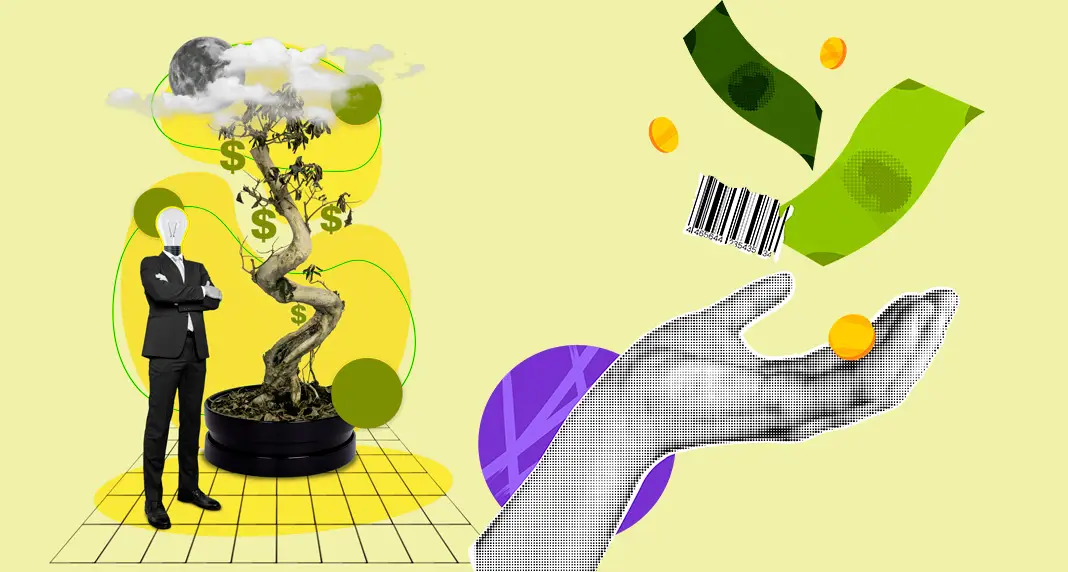Money should work… but do we truly understand what it means? Most people are accustomed to either earning or saving money. However, another option is to invest it, so that it generates additional income and, essentially, works for you.
While investment culture is still developing in some places, anyone can become an investor and start earning from their investments. If you want to learn how, why, and where it is profitable to invest money, let’s explore these questions together with GBC Time.
What Are Investments and Their Types?
There are active and passive ways to earn income. Active income is when we earn money through our efforts and talents, such as salary or income from entrepreneurial activities. Passive income, on the other hand, means receiving income without your direct involvement. For example, income from investments.
The essence of any investment is that you put money into a specific asset that will yield returns after a certain period, whether one-time or continuous.
For instance, you can invest in real estate, securities, education, and more. There are various ideas for investments that are suitable for any budget, investment experience, and approach.
Types and Categories of Investments
While investments are always about contributing with the aim of gaining profit, the principles and methods of investing can differ. Several criteria can classify investments:
- By ownership form: direct and portfolio investments. Direct investments involve buying shares and establishing new companies. Portfolio investments mean investing in securities — stocks and bonds.
- By asset type: financial and real. Financial investments include investing in currency and securities, while real investments involve investing in tangible assets like real estate, vehicles, commodities, or equipment.
- By risk: conservative and aggressive. Conservative investments refer to stable assets with low risk, like deposits. Aggressive investments involve higher risk but promise higher returns, such as startups or cryptocurrencies.
- By duration: short-term and long-term. This considers the investment horizon, where short-term investments last for a maximum of one year, while long-term investments continue for several years or more.
- By investment goals: income and growth. You can invest to generate a stable income, for example, by renting out a property. Alternatively, you can aim for asset appreciation, like investing in growing companies’ stocks.
So, the question of where to invest money depends on your goals, expected investment horizon, and readiness to take risks.
Developing an Investment Strategy
In investments, there are two main concepts: profitability and risks. It means considering how much money you can earn and how much you risk losing. Before starting to invest, take the following into account:
- Regular contributions will be necessary.
- Be prepared for a long-distance race; investing is not a get-rich-quick scheme.
- Understand that there will be risks that cannot be entirely avoided, but they can be minimized.
- Investing is a process of multiplying your assets by allocating your capital into investment instruments.
In simple terms, you have a certain sum of money that you invest in a specific venture, and in return, you can receive much more.
Before You Start Investing
Investing is not only profitable but also responsible and sometimes risky. So, it is essential to not only explore where it is profitable to invest money wisely but also prepare yourself thoroughly for it.
- Determine your current capital and assess if it is sufficient to start investing. All the assets you possess, except for credit funds, are considered capital.
- Analyze your expenses, paying special attention to non-essential expenditures.
- Establish a financial cushion in case you lose your main source of income.
- Plan a backup financial source for emergencies.
Lastly, always remember that being an investor is a profession, and no one is born with all the skills and knowledge required.
Main Investment Categories
Considering all the restrictions from the National Bank of Ukraine and securities and exchange commissions, the most relevant assets for preserving capital and generating monthly dividends are the following.
Business
Investment in business may seem prestigious and potentially profitable, but it comes with its risks.
It requires full dedication 24/7, and you need to be ready to optimize the budget and company and manage the associated risks.
Securities
Specifically, we are talking about stocks and bonds. This is considered the safest, most liquid, and most profitable form of investing, as you can buy or sell assets on the stock exchange at any time.
Interesting statistics from Gallup and SMIDA show that 46% of the US population invests in the stock market, whereas in Ukraine, the percentage of such investors is only 1%.
Any investment strategy begins with defining your goals. Hence, the primary aim is to preserve capital and achieve monthly income.
Cash
Obviously, the biggest threat when dealing with this asset is inflation. The expected inflation for 2025 is approximately 10.4%. Therefore, keeping money in hryvnias without additional investments will lead to a loss of purchasing power at least to this level.
Hence, keeping cash is a suitable option for short-term storage or monthly operational expenses.
Deposits
An investment tool for everyone. Here, you don’t need to delve into complicated investment nuances or monitor anything. Just choose a reliable bank and deposit your money under relatively favorable conditions.
Currently, the returns on deposits are around 18-20% in hryvnias and up to 4% in dollars.
However, despite their simplicity and transparency, deposits cannot provide high profits. The way it works is that the bank uses the deposited funds and invests them in government bonds in the stock market, making a profit from it. As a result, the depositor receives only 60-70%.
Real Estate
The most popular and arguably the most profitable investment tool. Of course, there are risks involved, as not all developers are trustworthy. Consider the following: Real estate prices in Kyiv have fallen by 30%. The average rental cost for an apartment is around $250 – $300 per month. The rental yield currently stands at approximately 10% in dollars, which is a decent return.
At the same time, it’s worth noting that the demand for rental properties has somewhat decreased, and the investment horizon for real estate is at least three years. So, be prepared to have your assets tied up during this time. On the other hand, you will receive monthly rental payments, and there is a possibility of additional income from the property’s appreciation.
Real estate is perhaps one of the most critical assets that you should have in the first place. If you already have a roof over your head that you don’t need to rent and can live and develop, then you have this asset. If you don’t possess this asset yet, prioritize acquiring one.
Venture Investments
Primarily, we are talking about investments that originate in Ukraine and are scaling to the global, European, or US markets. Currently, there are very few such companies. The average check ranges from $25,000 to $50,000, and there is high demand from investors. However, there are risks involved:
- Very low liquidity.
- Funds are locked up for a minimum of three years, possibly longer, with no dividends.
- The possibility of losing all your investments.
But there are chances of making a profit, 10 or even 20 times more than the invested amount.
Cryptocurrencies
A relatively new asset for investment, somewhat resembling venture investments. Currently, infrastructure blockchain projects with token placement in staking are popular. The average income in such cases can be around 12% in project tokens.
Cryptocurrency is a necessary asset for creating capital. Unlike venture capital, it can provide capital growth of 10 to 200 times over 2-5 years, with the added benefit of receiving monthly dividends.
Moreover, liquidity here will be much higher than when investing in startups or other businesses.
In conclusion, the most relevant assets for preserving capital and receiving monthly dividends are government bonds, real estate, and cryptocurrencies.
Investments are the key to expanded financial opportunities, where you can rely not only on your qualifications and efforts but also make your finances work for you, multiplying your capital. It involves risks, but it’s an integral part of an investor’s life.
Even investment guru “Oracle of Omaha,” Warren Buffett, talked about the risks in investments: “Uncertainty actually is the friend of the buyer of long-term values.”
So, don’t be afraid to start and take risks. Investments are not a game of chance like gambling. It’s a strategy, discipline, and continuous learning that eventually bears fruit.
Read more: Best Trading Platform for Beginners














